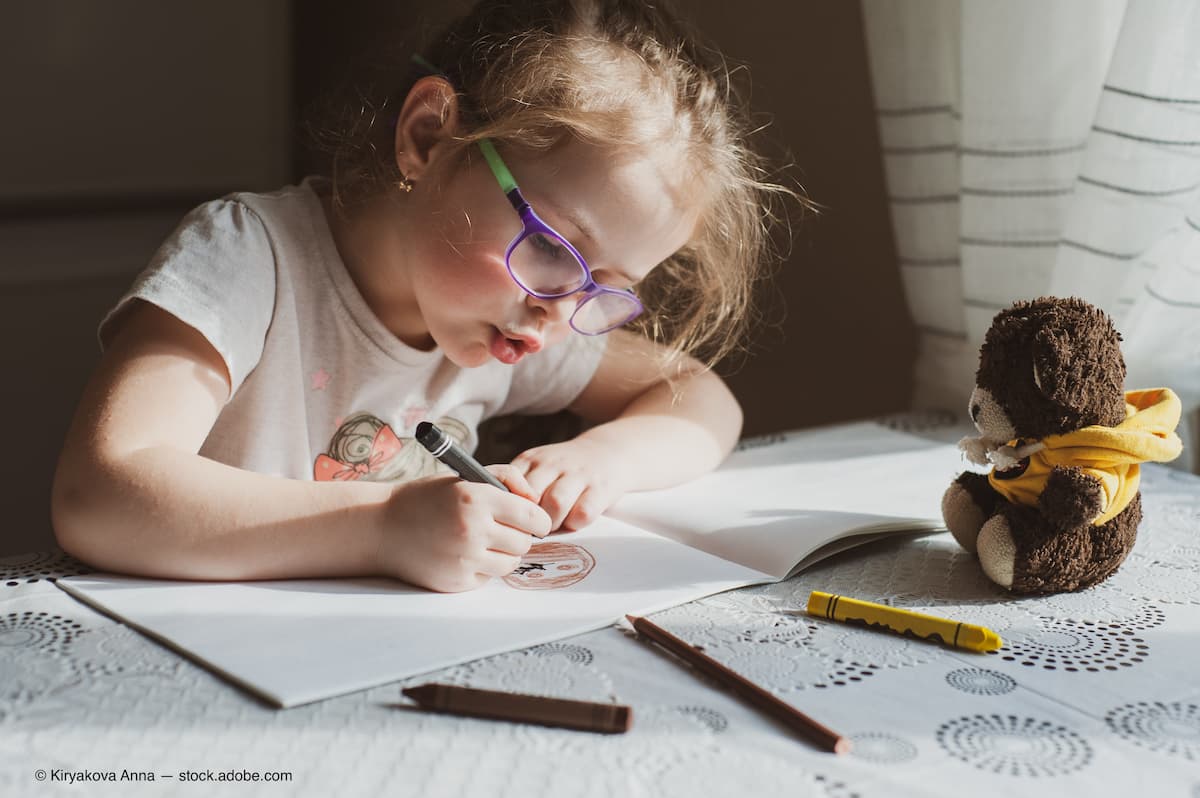Vyluma announces FDA acceptance of NDA for NVK002 for treatment of pediatric myopia
NVK002 is a proprietary, investigational, preservative-free eye drop administered nightly and intended for patients ages 3 to 17.
The NDA is supported by positive results from the company’s Phase 3 CHAMP (Childhood Atropine for Myopia Progression) clinical study. (Adobe Stock / Kiryakova Anna)

Vyluma has announced the US Food and Drug Administration (FDA) has accepted for review the New Drug Application (NDA) for NVK002.
In a press release from Vyluma,1 NVK002 is described as “a proprietary, investigational, preservative-free eye drop administered nightly and intended for patients ages 3 to 17.” Furthermore, a Prescription Drug User Fee Act (PDUFA) goal date of January 31, 2024, has been assigned by FDA.
Vyluma Founder and Chairman, Navneet Puri, PhD, discussed the step towards FDA clearance for their treatment in the press release.
“FDA acceptance of our NDA is a major milestone for Vyluma and brings us one step closer to advancing NVK002 as a new, first-in-class treatment option for children with myopia,” said Puri. “NVK002 has been thoroughly tested clinically and adheres to the high-quality standards required of a pharmaceutically manufactured product. We look forward to continuing to collaborate with FDA on the review of this important new treatment.”
The NDA is supported by positive results from the company’s Phase 3 CHAMP (Childhood Atropine for Myopia Progression) clinical study.
CHAMP was a 3-arm, randomized, double-masked, placebo-controlled Phase III clinical study conducted across the US and Europe in nearly 600 children and adolescents aged 3 to 17 years at enrollment. The study consisted of 2 stages: a completed 3-year treatment period to evaluate the safety and efficacy of NVK002, after which enrolled patients were re-randomized for a masked, ongoing 1-year treatment period to characterize cessation of therapy.2
“CHAMP is the largest and longest placebo-controlled, prospective pediatric myopia study conducted to date and we are very encouraged by the results from the first stage. While we are conducting analyses of the data to assess the full results, the top-line results represent a significant landmark in myopia management and signify a potential new and more hopeful era on the horizon,” said Puri when results were announced from the trial back in 2022
During the trial, NVK002 at a dose of 0.01% atropine achieved “statistically significant and clinically meaningful differences from placebo in every key outcome measure, including responder analysis, mean change from baseline in Spherical Equivalent Refraction (SER), and mean change from baseline in axial length at month 36,” according to the company. While NVK002 at a dose of 0.02% “demonstrated efficacy at several time points, including a statistically significant mean change in axial length compared to placebo at 36 months. Responder analysis was not statistically significant at month 36.”
References:
1. Vyluma Announces FDA Acceptance of New Drug Application for NVK002, Its Novel Investigational Treatment for Pediatric Myopia. Press Release. Vyluma; June 6, 2023. Accessed June 6, 2023. https://www.globenewswire.com/news-release/2023/06/06/2682640/0/en/Vyluma-Announces-FDA-Acceptance-of-New-Drug-Application-for-NVK002-Its-Novel-Investigational-Treatment-for-Pediatric-Myopia.html
2. Vyluma Announces Positive Results From Phase III CHAMP Study of NVK002 for Treatment of Myopia Progression in Children. Press release. Vyluma; October 27, 2022. Accessed June 6, 2023. https://www.globenewswire.com/news-release/2022/10/27/2543149/0/en/Vyluma-Announces-Positive-Results-From-Phase-III-CHAMP-Study-of-NVK002-for-Treatment-of-Myopia-Progression-i
Newsletter
Want more insights like this? Subscribe to Optometry Times and get clinical pearls and practice tips delivered straight to your inbox.